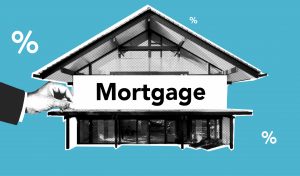
Closing and Title Costs
It’s the big day.
The day you go to the title or escrow company, sign your name on the dotted line, hand over a check and prepare to take ownership of your new home.
It’s also the day that you and the seller will pay “closing” or settlement costs, an accumulation of separate charges paid to different entities for the professional services associated with the buying and selling of real property.
It’s too often a day filled with uncertainty and stress.
To help you better understand this confusing subject, the Land Title Association has answered some of the questions most commonly asked about title, closing and closing costs.
What services will I be paying for when I pay closing costs?
You will usually be paying for such things as real estate commissions, appraisal fees, loan fees, escrow charges, advance payments such as property taxes and homeowner’s insurance, title insurance premiums, pest inspections and the like.
How much should I expect to pay in closing costs?
The amount you pay for closing costs will vary; however, when buying your home and obtaining a new loan, an estimate of your closing costs will be provided to you pursuant to the Real Estate Settlement Procedures Act after you submit your loan application. This disclosure provides you with a good faith estimate of what your closing costs will be in the real estate process. An itemized list of charges will be prepared when you close your transaction and take title to your new property.
Can I pay for my closing costs in installments?
No, and it is easy to understand why. Many different parties will have fulfilled their responsibilities and be awaiting payment upon closing. The title or escrow company will disburse money to those parties, pursuant to the escrow instructions, when funds are available.
Will I be allowed to write a personal check to cover my closing cost?
Your closing funds should be in the form of a cashier’s check, issued by an institution from the state of your purchase, made payable to the title company or escrow office in the amount requested. A personal check may delay the closing or may be unacceptable to the title or escrow company. An out-of-state check could also cause a delay in your closing due to possible delays in clearing the check.
How much can I expect to pay for Title Insurance?
This point is often misunderstood. Although the title company or escrow office usually serves as a meeting ground for closing the sale, only a small percentage of total closing fees are actually for title insurance protection.
Your title insurance premium may actually amount to less than one percent of the purchase price of your home, and less than ten percent of your total closing costs. The title policy is good for as long as you and your heirs own the property with the payment of only one premium.
Why are separate owner’s and lender’s title insurance policies issued?
Both you and your lender will want the security offered by title insurance.
Your home is an important purchase, and you will want to be certain your home is yours, all yours. Title insurance companies insure your rights and interests in order to protect you against claims.
Your lender is looking to insure the enforceability of their lien on your property and marketability. What is meant by “marketability”? Local lenders will originate a loan here, and, often, sell it to an out-of-state investor. This investor, who may never see the property, needs to know that he has a valid and enforceable lien. Title insurance is the way of making certain. Without a current title policy, the loan is essentially unmarketable.
What does my Title dollar pay for?
Title insurers, unlike property or casualty insurance companies, operate under the theory of risk elimination.
Risk elimination can only be accomplished after an intensive period of risk identification.
Title companies spend a high percentage of their operating revenue each year collecting, storing, maintaining and analyzing official records for information that affects title to real property. The issuance of a title insurance policy is highly labor-intensive. It is based upon the maintenance of a title “plant” or library of title records, in many cases dating back over a hundred years. Each day, recorded documents affecting real property are posted to these plants so that when a title search on a particular parcel is requested, the information is already organized for rapid and accurate retrieval.
Trained title experts are able, with the aid of their extensive title plants, to identify the rights others may have in your property, such as recorded liens, legal actions, disputed interests, rights of way or other encumbrances on your title. Before closing your transaction, you can seek to clear those encumbrances which you do not wish to assume.
The goal of title companies is to conduct such a thorough search and evaluation of public records that no claims will ever arise. Of course, this is impossible--we live in an imperfect world, where human error and changing legal interpretations make 100 percent risk elimination impossible. When claims do arise, title insurance companies have professional claims personnel to make sure that your property rights are protected pursuant to the terms of your policy.
To conclude, when you pay for your title insurance policy, you are paying for a team of professionals who have worked together to deliver you a title insurance policy which represents protection for your ownership of real property.
Who can I look for straight answers on Title, Closing, and closing costs?
Title or escrow company personnel are available to review and explain your title policy and your closing statement.
Article by CLTA

Closing Costs When Buying or Refinancing a Home
This is a detailed summary of costs you may have to pay when you buy or refinance your home. They are listed in the order that they should appear on a Good Faith Estimate you obtain from a mortgage lender. There are two broad categories of closing costs. Non-recurring closing costs are items that are paid once and you never pay again. Recurring closing costs are items you pay time and again over the course of home ownership, such as property taxes and homeowner’s insurance. Some of the items that appear here do not traditionally appear on a lender’s Good Faith Estimate and lenders are not required to show all of these items.
Non-Recurring Closing Costs Associated with the Lender.
Loan Origination Fee - The loan origination fee is often referred to as points. One point is equal to one percent of the mortgage loan. As a rule, if you are willing to pay more in points, you will get a lower interest rate. On a VA or FHA loan, the loan origination fee is one point. Any additional points are called discount points.
Loan Discount - On a government loan, the loan origination fee is normally listed as one point or one percent of the loan. Any points in addition to the loan origination fee are called discount points. On a conventional loan, discount points are usually lumped in with the loan origination fee.
Appraisal Fee - Since your property serves as collateral for the mortgage, lenders want to be reasonably certain of the value and they require an appraisal. The appraisal looks to determine if the price you are paying for the home is justified by recent sales of comparable properties. The appraisal fee varies, depending on the value of the home and the difficulty involved in justifying value. Unique and more expensive homes usually have a higher appraisal fee. Appraisal fees on VA loans are higher than on conventional loans.
Credit Report - As part of the underwriting review, your mortgage lender will want to review your credit history. The cost of running the credit report can vary and is included in closing costs.
Lender’s Inspection Fee - You normally find this fee on new construction and is associated with what is called a 442 Inspection. Since the property is not finished when the initial appraisal is done, the 442 Inspection is done when the building is completed and verifies that construction is complete with carpeting and flooring installed.
Mortgage Broker Fee - About seventy percent of loans are originated through mortgage brokers and they will sometimes list your points in this area instead of the Loan Origination Fee category. They may also add any broker processing fees in this area so you clearly understand how much is being charged by the wholesale lender and how much is being charged by the broker. Wholesale lenders offer lower costs/rates to mortgage brokers than you can obtain directly, so you are not paying extra by going through a mortgage broker.
Tax Service Fee - During the life of your loan you will be making property tax payments, either on your own or through your impound account with the lender. Since property tax liens can sometimes take precedence over a first mortgage, it is in your lender’s interest to pay an independent service to monitor property tax payments.
Flood Certification Fee - Your lender must determine whether or not your property is located in a federally designated flood zone. This is a fee usually charged by an independent service to make that determination.
Flood Monitoring - From time to time flood zones are re-mapped. Some lenders charge this fee to maintain monitoring on whether this re-mapping affects your property.
Other Lender Fees
We put these in a separate category because they vary so much from lender to lender and cannot be associated directly with a cost of the loan. These fees generate income for the lenders and are used to offset the fixed costs of loan origination. The Processing Fee mentioned above can also fall into this category, but since it is listed higher on the Good Faith Estimate Form we did not also include it here. You will normally find some combination of these fees on your Good Faith Estimate.
Document Preparation - Before computers made it fairly easy for lenders to draw their own loan documents, they used to hire specialized document preparation firms for this function. This was the fee charged by those companies. Nowadays, lenders draw their own documents but this fee is charged on almost all loans.
Underwriting Fee - Once again, it is difficult to determine the exact cost of underwriting a loan since the underwriter is usually a paid staff member.
Administration Fee - If an Administration Fee is charged, you will probably find there is no Underwriting Fee. This is not always the case.
Appraisal Review Fee - Even though you will probably not see this fee on your Good Faith Estimate, it is charged occasionally. Some lenders routinely review appraisals as a quality control procedure, especially on higher valued properties.
Warehousing Fee - This is rarely charged and begins to border on the ridiculous. However, some lenders have a warehouse line of credit and add this as a charge to the borrower.
Items Required to be Paid in Advance
Pre-paid Interest - Mortgage loans are usually due on the first of each month. Since loans can close on any day, a certain amount of interest must be paid at closing to get the interest paid up to the first. For example, if you close on the twentieth, you will pay ten days of pre-paid interest.
Homeowner’s Insurance - This is the insurance you pay to cover possible damages to your home and other items. If you buy a home, you will normally pay the first year’s insurance when you close the transaction. If you are buying a condominium, your Homeowners’ Association Fees normally cover this insurance.
VA Funding Fee - On VA loans, the Veterans Administration charges a fee for guaranteeing your loan. The fee will be a percentage of the loan balance but the exact percentage will vary depending on whether you have used your VA eligibility in the past. Instead of actually paying this as an out-of-pocket expense, most veterans choose to finance it, so it gets added to the loan balance. This is why the loan balance on VA loans can be higher than the actual purchase amount.
Up Front Mortgage Insurance Premium (UFMIP) - This is charged on FHA purchases of single-family residences (SFR’s) or Planned Unit Developments (PUDs). Like the VA Funding Fee it is normally added to the balance of the loan. Unlike a VA loan, the homebuyer must also pay a monthly mortgage insurance fee, too. This is why many lenders do not recommend FHA loans if the homebuyer can qualify for a conventional loan. Condominium purchases do not require the UFMIP.
Mortgage Insurance - Though it is rare nowadays, some first-time homebuyer programs still require the first year mortgage insurance premium to be paid in advance. Most mortgage insurance (when required) is simply paid monthly along with your mortgage payment. Mortgage insurance covers the lender and covers a portion of the losses in those cases where borrowers default on their loans.
Reserves Deposited with Lender
If you make a minimum down payment, you may be required to deposit funds into an impound account. Funds in this account are your funds, and the lender uses them to make the payments on your homeowner’s insurance, property taxes, and mortgage insurance (whichever is applicable). Each month, in addition to your mortgage payment, you provide additional funds which are deposited into your impound account.
The lender’s goal is to always have sufficient funds to pay your bills as they come due. Sometimes impound accounts are not required, but borrowers request one voluntarily. A few lenders even offer to reduce your loan origination fee if you obtain an impound account. However, if you are disciplined about paying your bills and an impound account is not required, you can probably earn a better rate of return by putting the funds into a savings account. Impound accounts are sometimes referred to as escrow accounts.
Homeowners Insurance Impounds - your lender will divide your annual premium by twelve to come up with an estimated monthly amount for you to pay into your impound account. Since a lender is allowed to keep two months of reserves in your account, you will have to deposit two months into the impound account to start it up.
Property Tax Impounds - How much you will have to deposit towards taxes to start up your impound account varies according to when you close your real estate transaction. For example, you may close in November and property taxes are due in December. Your deposit would be higher than for someone closing in May.
Mortgage Insurance Impounds - When required, most lenders allow this to simply be paid monthly. However, you may be required to put two months’ worth of mortgage insurance as an initial deposit into your impound account.
Non-Recurring Closing Costs not associated with the Lender
Closing/Escrow/Settlement Fee - Methods of closing a real estate transaction vary from state to state, as do the fees.
Title Insurance - Title Insurance assures the homeowner that they have clear title to the property. The lender also requires it to insure that their new mortgage loan will be in first position. The costs vary depending on whether you are purchasing a home or refinancing.
Notary Fees - Most sets of loan documents have two or three forms that must be notarized. Usually your settlement or escrow agent will arrange for you to sign these forms at their office and will charge a notary fee.
Recording Fees - Certain documents get recorded with your local county recorder. Fees vary regionally.
Pest Inspection - This is also referred to as a Termite Inspection. This inspection tests not only for pest infestations, but also other items such as wood rot and water damage. If repairs are required, the amount to cover those repairs can vary. The seller will usually pay for the most serious repairs, but this is a negotiable item. Usually (not always) the pest inspection fee is paid by the seller of the home and is not normally reflected on the Good Faith Estimate.
Home Inspection - Since it is the homebuyer’s choice to obtain a home inspection or not, this cost is not usually reflected on a Good Faith Estimate. However, it is recommended. Keep in mind that the home inspector has a certain set of standards he uses when inspecting a home, and those standards may be higher than required by local building codes. An example is that an inspector may note there is no spark arrestor on a chimney but the local building code may not require it. This sometimes leads to conflicts between buyer and seller.
Home Warranty - This is also an optional item and not normally included on the Good Faith Estimate. A Home Warranty usually covers such items as the major appliances, should they break down within a specific time. Often this is paid by the seller.
Refinancing Associated Costs (but not charged by the new Lender)
Interest - When you close the transaction on your refinance, there will most likely be some outstanding interest due on the old loan. For example, if you close on August twentieth (and you made your last payment), you will have twenty days interest due on the old loan and ten days prepaid interest on the new loan. Your first payment on the new loan would not be until October 1st since you have already paid all of August’s interest when you closed the refinance transaction (since interest is paid in arrears, a September payment would have paid August’s interest, which has already been paid in closing).
Reconveyance Fee - This fee is charged by your existing lender when they “reconvey” their collateral interest in your property back to you through recording of a Reconveyance.
Demand Fee - Your existing lender may charge a fee for calculating payoff figures.
Sub-Escrow fee - Though it sounds like an escrow fee, this fee is actually charged by the Title Company. Assume it is an income-generating fee similar to some of the lender fees mentioned above.
Loan Tie-in Fee - Though it sounds like a lender fee, this cost is actually charged by the Escrow Company.
Homeowner’s Association Transfer Fee - If you are buying a condominium or a home with a Homeowner’s Association, the association often charges a fee to transfer all of their ownership documents to you.
Asking the Seller to Pay Closing Costs - Rules and Advice.
It has become common to ask the seller to pay some or all of the closing costs when you purchase a home. Essentially, this is financing your closing costs since you will probably pay a little bit more for the property than you would if you were paying your own costs.
Keep in mind a few simple rules. On conventional loans you can only ask the seller to pay non-recurring costs, not prepaid fees or items to be paid in advance. If you are putting ten percent down or more, the most the seller can contribute is six percent of the purchase price. If you are putting less down, the most the seller can contribute is three percent.
On VA loans, you can ask the seller to pay everything. This is called a “VA No-No”, meaning the buyer is making no down payment and paying no closing costs.
On FHA loans, the seller can pay almost any cost, but the buyer has to have a minimum three percent investment in the home/closing costs.
Most refinances include the closing costs and prepaids in the new loan amount, requiring little or no out-of-pocket expenses to close the deal.
If you didn’t get bored as you read through this, now you know everything (almost) about closing costs.












































